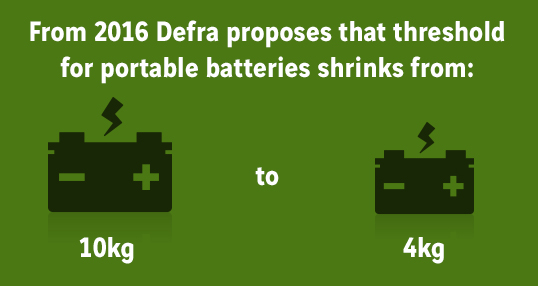Removal of a recycling ‘grey area’ could see increased costs for Europe’s battery recycling industry after tougher regulations came into effect on January 1st.
Batteries weighing more than 4kg are now classed as ‘industrial’, as are batteries which are lighter, but designed exclusively for professional or industrial use.
The ‘portable’ classification was revised under regulations by the UK’s Department of Environment, Food & Rural Affairs (DEFRA).
Previously batteries weighing up to 4-10kg, but which were transportable by hand, were classed as portable in the UK’s Government Guidance on the Waste Batteries Regulations 2009.
The move will go some way to eradicating an anomaly which saw 83% of the UK’s battery recycling obligations being met through the collection of lead-acid batteries, despite the chemistry only making up 8% of new batteries coming on to the market.
“We agree that action needed to be taken to rectify the imbalance in the way producers and recyclers define portable batteries,” said compliance scheme Ecosurety commercial manager Robbie Staniforth.
“We agree that the change in definition will lead to an increase in the cost of batteries compliance for producers.”
It could mean more non-lead batteries will need to be recycled in the UK to meet the EU recycling targets, which require 45% of portable batteries to be collected by the end of 2016.
Read more about the EU re-classification from 2013 here and in 2015 here












